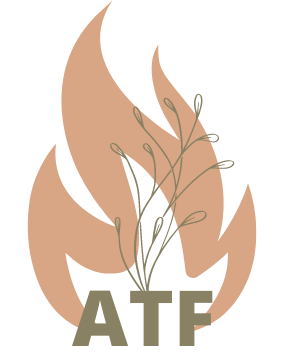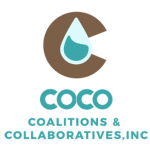We invite submissions for presentations at the “From Flames to Resilience” conference, where we will explore strategies, tools, and collaborative approaches that contribute to effective post-fire recovery. Share your expertise and insights on enhancing pre-fire planning, addressing policy challenges, integrating science, and showcasing practical implementation strategies aimed at building resilient communities. Join us in shaping the future of post-fire recovery and fostering resilience in the face of wildfire.
COCO invites proposals addressing the following topics:
- Exploring strategies and best practices for pre-fire planning to facilitate efficient and effective post-fire recovery efforts.
- Integrating post-fire considerations into Community Wildfire Protection Plans (CWPPs) and Hazard Mitigation Plans (HMPs).
- Assessing the role of science in informing management decisions for fire outcomes and its impact on community readiness for post-fire impacts.
- Leveraging AI and data-driven approaches for risk-informed decision-making in post-fire recovery planning.
- Identifying available tools and resources for pre-fire planning and discussing challenges and opportunities in their accessibility and utilization.
- Promoting the importance of including post-fire discussions in pre-fire planning processes.
- Addressing challenges and barriers to effective interagency collaboration in post-fire recovery.
- Cultivating partnerships and networks that support ongoing collaboration and coordination.
- Highlighting the involvement of diverse stakeholders beyond agencies.
- Exploring the role of post-fire navigators and showcasing their contributions to post-fire recovery planning and implementation.
- Discussing policy barriers and opportunities for implementing effective post-fire recovery strategies.
- Assessing the progress and recommendations of relevant commissions and working groups.
- Visioning the future of post-fire recovery management systems.
- Examining FEMA’s role and contributions in post-fire recovery.
- Making the best science accessible to practitioners.
- Working in social-ecological systems.
- Identifying funding sources and leveraging multiple funding streams for post-fire recovery projects.
- Sharing available tools and resources, case studies and success stories showcasing practical implementation tactics alongside broader strategic approaches.
Formats
Participants may select from a range of presentation formats that will equip them with practical tools and knowledge to be more effective in post-fire work. Please consider the following formats when submitting a proposal.
A session of 4-6 subject matter experts speaking on an area of post-fire recovery. Organizer brings together the speakers and manages the session. Participants in the session will gain an in-depth understanding of current research and methodologies for post-fire response.
Dynamic conversations from experts in the field through panel discussions. These sessions will explore key topics and challenges related to post-fire recovery, featuring multiple perspectives and insights from various stakeholders. Participants will gain a comprehensive understanding of current issues and innovative approaches in the field.
Hands-on learning and skill development. These sessions may include workshops, simulations, or group exercises that enable participants to actively engage with tools, methodologies, and best practices relevant to post-fire work. Through interactive sessions, attendees will acquire practical skills that can be applied directly in their work.
Experience hands-on demonstrations of tools, technologies, and resources that enhance effectiveness in post-fire work. These sessions may include software demonstrations, field equipment showcases, or practical demonstrations of innovative solutions. Participants will have the opportunity to explore and familiarize themselves with tools that can support their post-fire recovery efforts.
Attend informative presentations that provide in-depth knowledge and analysis of specific post-fire recovery topics. These sessions will offer valuable insights into research findings, policy updates, case studies, and emerging trends in the field. Participants will gain a deeper understanding of the latest developments and approaches in post-fire recovery.
Opportunity to present scientific work informally, generating opportunities for networking and feedback. Posters communicate concepts and data using a combination of visuals and text on your and/or your colleagues’ research. These presentations offer the chance for all conference attendees to stay up-to-date on recent studies and publications.
DIRECTIONS TO SUBMIT SESSION PROPOSAL
Step 1: Log into https://coco2024.exordo.com/login and create an account. Click on “Submit Your Abstract Now”
Step 2: Select the Presentation Format.
Step 3: Provide a Title and Abstract (300 words) for your session. The Abstract description should include the purpose and content of the session. You will be able to upload an Abstract document later.
Step 4: Provide the author(s) for your session. Additional authors may be added by entering their email address. If they have already registered with ExOrdo the information will automatically populate, if not please complete the information. You will be asked if this is a student submission. Indicate the lead author as the “Corresponding Author” for the session, this is the Author who will receive session information. The additional authors should be indicated as “Presenting Author.
Step 5: Provide each author’s brief (100 words max) biography.
Step 6: Select a maximum of two topics that describe your session.
Step 7: Projectors and screens will be provided. Please indicate if you need any additional equipment or materials for your session, such as whiteboards, notepads, flip charts, etc. Indicate the proposed length of your session/ presentation. The time may need to be adjusted as the program is developed. The lead author will be consulted for any necessary changes.
Time Allotted Options:
20-minute individual presentation
60-minutes for panel/organized session or interactive workshop
90-minute for panel/organized session or interactive workshop
4 hours for interactive or workshop session
Step 8: Upload your Abstract or any additional information for ATF consideration.
You will receive an email receipt from the system approximately 15 minutes after you submit your session. You can amend the submittal or add additional proposals until the December 15, 2023 deadline. All accepted submissions will be notified by January 31, 2024. At that time, you will receive information on PowerPoint submittal and format.
All presenters must be registered for the conference by February 29, 2024, or the presentation will be dropped from the program.

